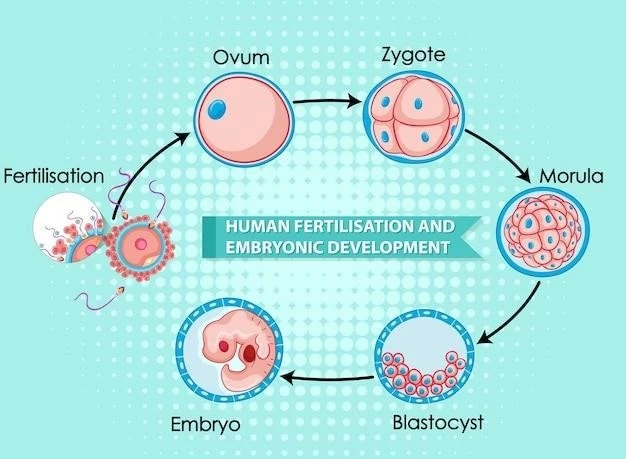Skin rash (tiny red spots or bruising) at birth. Many babies born with congenital toxoplasmosis experience no immediate symptoms. Learn more.
Toxoplasmosis is a parasitic disease caused by Toxoplasma gondii. Congenital toxoplasmosis occurs when the parasite is transmitted from mother to fetus during pregnancy. The infection can lead to various complications in infants‚ affecting different organs and systems.
Clinical Manifestations of Congenital Toxoplasmosis
Congenital toxoplasmosis may present with symptoms such as skin rash at birth or remain asymptomatic‚ affecting infants in various ways. Learn more.
Definition and Causes
Toxoplasmosis is a parasitic disease caused by Toxoplasma gondii. Learn how congenital toxoplasmosis occurs due to the transmission of the parasite from mother to fetus during pregnancy‚ leading to potential complications in infants.
Long-Term Effects
Infants with congenital toxoplasmosis may develop complications over time‚ such as vision loss‚ seizures‚ hearing issues‚ or developmental delays. Early treatment is crucial for managing these potential long-term outcomes.

Diagnosis and Testing
Diagnosing congenital toxoplasmosis in newborns poses challenges due to various factors like antibody transfer and test sensitivity. Recommended testing includes IgM- and IgA-capture EIA.
Challenges in Diagnosis
Diagnosing congenital toxoplasmosis in newborns poses challenges due to factors like transfer of maternal IgG antibodies to the fetus‚ test sensitivity‚ and limitations in specific IgA detection kits. Testing with IgM- and IgA-capture EIA is recommended for accurate diagnosis.
Recommended Tests
Diagnosing congenital toxoplasmosis often involves recommended tests like IgM- and IgA-capture EIA due to the challenges posed by maternal antibody transfer and test sensitivity. These tests play a crucial role in accurate diagnosis and prompt management of the condition.
Antiparasitic medications are used to treat congenital toxoplasmosis‚ and close monitoring along with follow-up care are crucial for managing the condition effectively.
Antiparasitic Medications
Antiparasitic medications are essential in treating congenital toxoplasmosis. Proper prescription and administration of these medicines are crucial for effectively managing the condition in newborns.
Treatment and Management
Antiparasitic medications are utilized to treat congenital toxoplasmosis‚ while monitoring the condition closely and providing follow-up care are essential components of managing the disease effectively.
Prevention of Congenital Toxoplasmosis
Strategies for pregnant women include avoiding handling cat litter and ensuring proper hygiene practices. These measures help reduce the risk of transmitting toxoplasmosis to the fetus.
Strategies for Pregnant Women
Pregnant women can adopt strategies to prevent congenital toxoplasmosis by avoiding handling cat litter‚ ensuring proper hygiene practices‚ and taking precautions when handling raw meat. These measures play a crucial role in reducing the risk of transmission to the fetus.
Avoiding Risk Factors
Pregnant women can reduce the risk of congenital toxoplasmosis by avoiding raw or undercooked meat‚ unwashed fruits and vegetables‚ and contact with cat feces. Following these guidelines can help prevent transmission of the parasite to the fetus.
Epidemiology and Impact
Toxoplasmosis‚ congenital‚ affects fetuses and newborns with a wide range of manifestations‚ including severe complications like ocular and neurological diseases. Learn more about the impact of this parasitic disease.
Incidence Rates
The incidence of congenital toxoplasmosis varies based on the trimester during which maternal infection occurred. The severity also varies with prompt treatment being essential for reducing sequelae in infants.
Global Burden of Disease
Congenital toxoplasmosis presents a global burden‚ impacting newborns with various clinical manifestations‚ from asymptomatic cases to severe ocular and neurological diseases. Understanding the worldwide prevalence and implications of this condition is crucial for effective management and prevention strategies.
Congenital toxoplasmosis presents a spectrum of clinical manifestations from asymptomatic cases to severe ocular and neurological diseases. Ongoing research focuses on treatment efficacy and long-term outcomes for affected infants.

Research and Studies
Recent findings in congenital toxoplasmosis research focus on understanding treatment efficacy and long-term outcomes for affected infants‚ aiming to improve management strategies and reduce associated complications.
Treatment Efficacy
Recent studies focus on assessing the effectiveness of treatments for congenital toxoplasmosis in infants‚ aiming to improve outcomes and reduce potential long-term complications associated with the disease.
Congenital toxoplasmosis can lead to significant complications like vision issues‚ seizures‚ and developmental delays in affected individuals. Early diagnosis and appropriate management are crucial for addressing these potential challenges effectively.
Complications and Prognosis
Congenital toxoplasmosis can lead to significant complications‚ ranging from vision issues to developmental delays. Early diagnosis and appropriate management are essential for addressing these risks effectively.
Long-Term Outcomes
Congenital toxoplasmosis can have long-term implications‚ including vision problems‚ seizures‚ and developmental delays. Timely diagnosis and appropriate interventions are essential for managing these outcomes effectively.
Maternal Health and Toxoplasmosis
The impact on pregnancy from congenital toxoplasmosis includes potential complications like prematurity‚ jaundice‚ and intrauterine growth restriction. Management approaches for infected mothers aim to reduce the risk of transmission to the fetus and mitigate associated adverse outcomes.
Impact on Pregnancy
Congenital toxoplasmosis can have serious repercussions during pregnancy‚ affecting factors like gestational age‚ resulting in prematurity‚ and causing complications such as growth restriction‚ jaundice‚ and developmental issues in the newborn.
Management Approaches
Management of congenital toxoplasmosis involves strategies to reduce the risk of complications during pregnancy‚ early diagnosis‚ and appropriate treatment to minimize the impact on both the mother and the fetus. Tailored management approaches aim to enhance outcomes and reduce potential adverse effects associated with the condition.
Public Health Strategies
Public health efforts focus on educating pregnant women to avoid cat litter and raw meat‚ reducing the risk of congenital toxoplasmosis and its potential complications. Implementation of preventive measures is crucial for protecting maternal and fetal health.
Awareness Campaigns
Public health initiatives include awareness campaigns targeting pregnant women to educate them on the importance of avoiding specific risk factors like handling cat litter and consuming undercooked meat to prevent congenital toxoplasmosis. These campaigns aim to empower expectant mothers with knowledge to protect both their health and the health of their unborn children.
Policy Recommendations
Policy recommendations for preventing congenital toxoplasmosis often focus on public health initiatives to educate pregnant women on risk factors and preventive measures. Implementing policies that support awareness campaigns and access to testing can improve maternal and fetal health outcomes by reducing the incidence of this parasitic disease.
